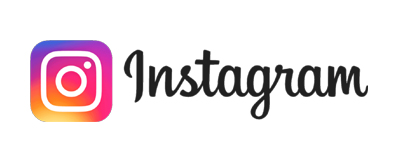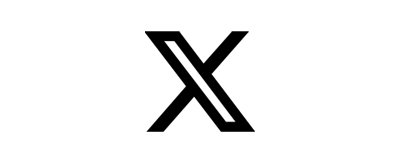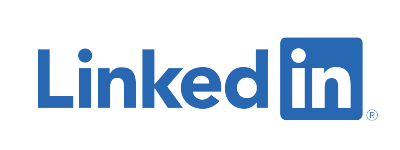
Media Hub
The Centre for Teaching and Learning’s Media Hub serves as a central resource for educators, offering easy access to a curated collection of multimedia content. This includes links to relevant publications, podcasts, videos, and social media channels—all designed to inspire new teaching strategies and promote a culture of continuous improvement.
Publications
CTL Annual Reports
Our Annual Reports explore the CTL initiatives, activities, events, consultations, awards and data collection from the past academic years.
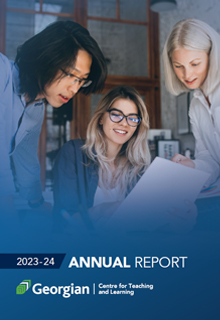
New Faculty Handbooks
As a new faculty, we know you have lots of questions. Here are two quick guides with frequently asked questions and information for your first semester of teaching.
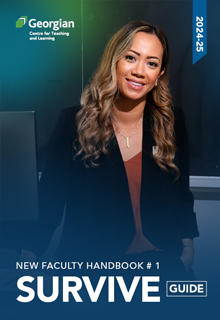
YouTube channels
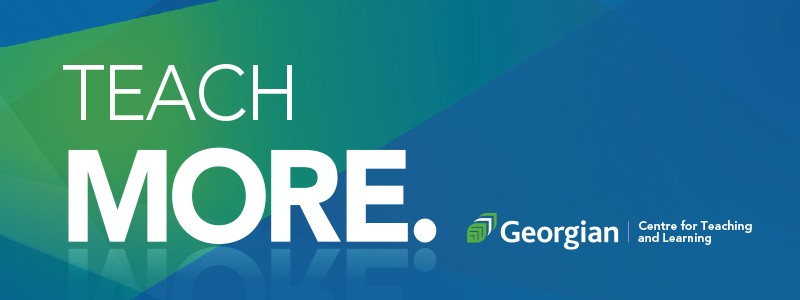
CTL YouTube channel
At CTL’s official YouTube channel, you’ll find a wide range of videos designed to support educators with practical teaching tips, instructional technology tutorials, and insights into innovative teaching strategies. Subscribe to stay updated with new content that will inspire and enhance your teaching practices.
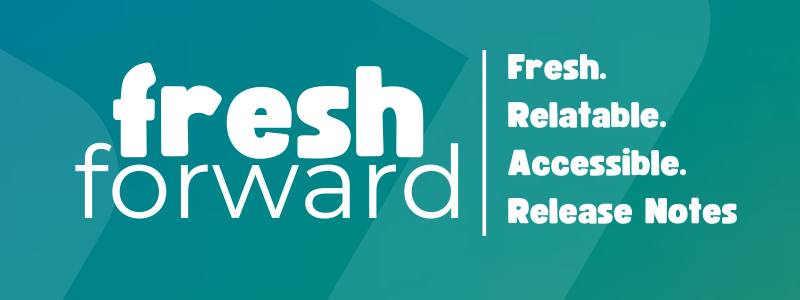
FreshForward YouTube channel
Grab your coffee and join us as we dive into the newest releases from Blackboard and other educational technologies, emphasizing the impact they can have on the courses we develop. This podcast style series offers a fresh, unique, and authentic way to unpack these updates and discuss the potential opportunities they present.
Podcasts
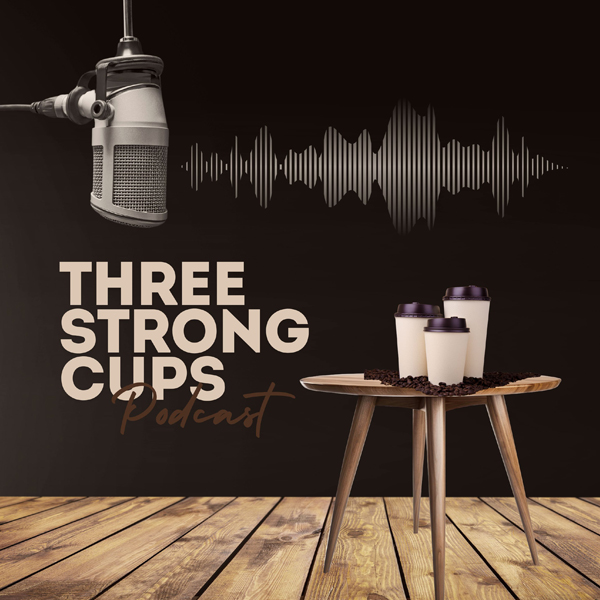
Three Strong Cups (Nov. 2024 onwards)
Welcome to Three Strong Cups—the podcast that brews up conversations about life, education, and everything in between, with a focus on the world of higher education at Georgian College. Hosted by Kim Reid, Kelly Fox, and Jarrod Otterman, each episode invites listeners to sip on fresh, honest discussions, from campus happenings to personal stories. Whether we’re exploring the latest trends or sharing a few laughs, we promise to keep things real, raw, and engaging. So, grab your favorite drink, settle in, and join us for a cozy chat. Cheers to good company and even better conversations!
Episode Summaries and Resources
Season 2
Nov. 10, 2025
The magic of the 2025 Blue Jays is something everyone can learn from. Kelly, Kim, and Jarrod riff on why this year’s team chemistry felt electric and how to bottle that magic for the classroom: belonging over bravado, celebrating small wins, pulse-checking the room, and letting plans curveball into better moments. It’s sports metaphors, teacher confessions, and practical moves you can steal tomorrow—no stats degree required, just good vibes and a well-timed high-five.
Big ideas we touched on
- Belonging beats perfection: students risk more when they feel they’re on a team.
- Celebrate the singles, not just the homers: make success visible and shared.
- Pulse checks > autopilot: read the room, then adjust the game plan.
- “Warm demander” stance: high standards with high support.
- Resilience is teachable: normalize strikeouts and model the reset.
Oct 27, 2025
If learning is the journey, the hidden curriculum is the map students weren’t given. Jarrod, Kim and Kelly talk what it is, how it shows up (participation, email, group roles, AI), and why naming it levels the playing field. Leave with ready-to-use tips to make the implicit explicit—without lowering the bar.
Hidden curriculum & “make the implicit explicit”
- CAST: Universal Design for Learning (UDL) overview and guidelines (useful lens for making expectations visible). CAST+2udlguidelines.cast.org+2
Clarity without lowering standards
- Brené Brown on “Clear is kind. Unclear is unkind.” (context + practical framing). Clear Is Kind. Unclear Is Unkind. – Brené Brown
“Warm demander” stance
- Primer on Warm Demander pedagogy (history, classroom practices). Warm Demander Pedagogy | Online Learning at PCC
AI “traffic-light” (stoplight) policy
- Red/Yellow/Green permissions to guide student AI use (your shout-out to the infographic). Personalized, Ethical, and Future-Ready: How Anthony Tilotta is Using GenAI to Empower Students – Georgian College CTL
Oct. 15, 2025
Kim, Kelly, and Jarrod pour over an Adam Grant idea—“undivided attention is the most basic currency of care”—and translate it into classroom practice. They unpack why our attention gets hijacked (hello, “attention engineers”), then trade concrete moves for teaching in a distracted world: micro-lessons and “attention anchors,” do-not-disturb norms, ticket-out-the-door metacognition, student-built engagement rubrics, purposeful breaks, scaffolded demos, and inclusive design touches like trauma-aware pacing, predictability + choice, and sensory-load checks. The trio closes with a gentle reminder: progress isn’t linear—give students (and yourself) some grace.
Books and Authors
- James M. Lang — Distracted: Why Students Can’t Focus and What You Can Do About It
Practical classroom moves to channel attention without shaming or tech bans.
- Cal Newport — Deep Work & Digital Minimalism
Research-informed strategies for building focus habits and reducing digital noise.
- Zaretta Hammond — Culturally Responsive Teaching and The Brain
Engagement, trust, and cognitive load through a culturally responsive lens.
- bell hooks — Teaching to Transgress
Humanizing pedagogy that invites presence, agency, and care.
- Saundra Yancy McGuire — Teach Students How to Learn
Metacognition routines (exam wrappers, study cycles) that make attention purposeful.
- Mary-Ann Winkelmes et al. — Transparency in Learning and Teaching (TILT)
Clear purpose, tasks, and criteria to reduce uncertainty and split attention.
- Peter C. Brown et al. — Make It Stick
Retrieval practice and spacing—evidence-based techniques to sustain attention.
Educational Concepts and Ideas
- Micro-Lessons & Chunking
8–12-minute instructional bursts followed by a check-for-understanding or brief application.
- Retrieval & Spacing
Low-stakes quizzes, quick polls, or whiteboard bursts to refocus attention through memory effort.
- Universal Design for Learning (UDL)
Multiple means of engagement, representation, and action/expression to sustain attention across diverse learners.
Sep. 29, 2025
Grab your mug—this episode of Three Strong Cups is a leadership latte with extra foam. We riff on everyday leadership moves you can use in class (or life) before your coffee cools: setting values as guardrails, turning messy moments into momentum, and using gratitude like rocket fuel. Expect quick prompts, real talk, and a few spicy tangents. If you teach, you lead—let’s make it bold, not bitter.
Books
Podcasts / Series
Websites / Tools
- Brené Brown’s List of Values (brenebrown.com) – resource for identifying and narrowing personal values
Colleagues / Thought Leaders Referenced
Sep. 15, 2025
This week, Jarrod Otterman, Kelly Fox, and Kim Reid brew on a simple idea with big impact: two things can be true at once. Sparked by a quote about “coexisting” qualities on the path to excellence, we dig into what that looks like in real classrooms—intensity and joy on day one, confidence and humility as we grow, and the constant dance between structure and flexibility. We swap stories about syllabus rules vs. compassion, being a content expert but a new teacher, and practicing self-kindness while still doing the work. We also share the origin story of Three Strong Cups—and why we built a space you can take on a walk, commute, or laundry fold.
You’ll hear:
- Practical ways to balance rigor with grace for students
- How vulnerability strengthens (not weakens) educator credibility
- Strategies for staying adaptable when plans go sideways
Grab your favourite drink and join us for a warm, real conversation about teaching in the gray—where both/and beats either/or.
📖 Inspiration
- Brad Stulberg – Writer and speaker on performance and well-being.
“Things that can coexist on the path to excellence: intensity and joy, confidence and humility, solitude and community, self-discipline and self-kindness, hard work and rest, success and failure, consistency and adaptability.”
🎓 Teaching & Learning Takeaways
- Expertise + Vulnerability – You can be both the subject matter expert and open to not knowing everything.
- Structure + Flexibility – Lesson plans provide stability, but space for flexibility creates deeper learning moments.
- Rigor + Compassion – Clear expectations can (and should) coexist with human understanding.
- Consistency + Adaptability – Show up prepared, but stay open to adjusting based on context and student needs.
🌍 Context We Talked About
- The importance of setting professional development goals for ourselves as educators.
Sep. 12, 2025
We’re back for Season 2! In this short kickoff, Kim, Kelly, and Jarrod check in on how they’re entering Fall 2025—equal parts energized for new projects and honest about the heaviness of sector-wide change affecting friends and colleagues. Jarrod shares how being back with students (amid a big teaching load) quickly rekindled purpose, while the trio sets intentions for the year: keep conversations real, name the hard stuff, and deliberately chase the joy in teaching.
Looking ahead, expect unscripted chats, timely higher-ed topics they’ve been reading and listening to, and guest voices—including from beyond Georgian—who’ll help us celebrate what’s special about this work.
Season 1
Date: June 13, 2025
In this heartfelt final episode of the season, hosts Kelly Fox, Kim Reid, and Jarrod Otterman reflect on a year of rich dialogue, professional growth, and authentic connection. As they wrap up the 2024–2025 academic year, the trio explores the value of unscripted conversations, their favorite topics—from teaching philosophies to imposter syndrome—and the joy of consistent connection in an unpredictable higher education landscape.
The episode celebrates the success of the podcast not through metrics, but through meaningful engagement, personal development, and the unexpected impact of shared stories. The hosts candidly discuss the importance of self-care, community, and making space for joy during a demanding year, while reaffirming their commitment to return in the fall with more thoughtful conversations.
Whether you’re a faculty member looking for inspiration or simply a curious listener, this season finale captures the essence of what makes Three Strong Cups a space for real talk, reflection, and camaraderie.
Date: May 16, 2025
In this mouth-watering episode, Kelly, Kim, and Jarrod serve up a hot, cheesy metaphor for rethinking lecture-based learning—pizza. That’s right, we’re tossing out stale teaching models and asking: what if your course was a pizza? From digital natives and mental health to pineapple-on-pizza-level controversy about flexible learning, this episode explores what Gen Z learners really crave. Packed with laughs, real talk, and enough toppings to build your own pedagogical pie, we chew on ways to cut the three-hour lecture into bite-sized, flavorful slices that actually stick. Whether you’re a fan of flipped classrooms, active learning, or just hungry for change, grab your favorite drink and get ready to rethink your recipe for student success
Key Takeaways
- Cut the pizza! Break your lectures into smaller, digestible “slices” of learning (micro-lessons).
- Let them build their own pie. Offer students flexibility and autonomy in how they demonstrate learning.
- Use real toppings. Integrate real-world applications, case studies, and digital interaction tools to make learning relevant.
- Don’t fear the pineapple. Trying new things—like flipped classrooms or student choice—can feel risky, but can lead to better outcomes.
- Even burnt pizza teaches something. Give students space to fail safely, reflect, and try again.
The Pedagogical Pizza Model
| Pizza Element | Teaching Equivalent |
| Dough (base) | Core content and course outcomes |
| Sauce | Your teaching approach or delivery method |
| Cheese | Foundational knowledge everyone gets |
| Toppings | Optional content, student choice, variety |
| Slices | Micro-lessons, active learning segments |
| Wood-fired oven | The classroom experience + instructor guidance |
| Leftovers | Material to revisit, reflect on, or expand later |
Suggested Resources
Reading & Research
- Generation Z Goes to College by Corey Seemiller & Meghan Grace – Insight into Gen Z learner needs
- Small Teaching by James M. Lang – Practical micro-strategies to boost student engagement
- The Flipped Classroom: A Teacher’s Guide (Vanderbilt CFT) – Read online
Tools to Try
- Edpuzzle or H5P – Embed quizzes into videos for immediate feedback
- Padlet or Jamboard – Visual, collaborative brainstorming during class
- Teams self-messaging + Voice Notes – Capture your reflections and observations (or send yourself a pizza party invite)
Try This
1. Pizza Prep Plan
Instead of building a three-hour lecture, draft your class like a pizza:
- Break content into 3–4 “slices” (10–20 min segments)
- Add a “topping” (tech tool, discussion, case study) to each
- Include at least one “cheesy” activity—something fun, low-stakes, or review-based
2. Student’s Choice Toppings
Offer students a build-your-own-assignment format:
- Choose from a list of project types
- Pick topics that connect with personal or career goals
- Reflect on their “pizza” in a short learning journal
Date: May 2, 2025
In this episode, the Three Strong Cups crew brews up a rich conversation on reflection—why we don’t do it enough, how we’re actually doing it more than we think, and how to make it a habit (without needing a leather-bound journal or inner Zen master). Kelly, Kim, and Jarrod dive into sticky-note wisdom, voice memo love letters to your future self, and how AI might just be the personal assistant we didn’t know we needed. Along the way, there’s laughter, real talk, a couple of “doo doo” jokes, and a collective nod to the power of pausing, processing, and being kind to ourselves (and each other). Whether you’re a faculty member in week 14 chaos or a reflection rookie wondering where to begin—this one’s for you.
Key Takeaways
- Reflection is already happening. Sticky notes, bedtime mental loops, and hallway conversations all count.
- Start small. A one-sentence reflection or 30-second voice memo is still a win.
- Tech can help. Use tools like Teams messages to yourself, voice memos, or AI to organize and analyze your reflections.
- Positive feedback matters. Collect your compliments—digital folders, screenshots, handwritten notes—for those low days.
- Reflection fuels growth. It’s not just for professional development goals—it also sustains resilience and reminds us of our impact.
Reflection Tools & Techniques
Micro-Reflection Ideas
- Sticky notes with quick thoughts post-class
- Voice memos to your future self (“Hey, future Kelly…”)
- Message yourself in Teams and tag by topic or course
- End-of-day “What went well?” jot in Notes or a journal app
AI-Powered Support
- Use tools like Copilot, ChatGPT, or Otter.ai to:
- Summarize your voice notes
- Generate reflection prompts
- Create a teaching improvement to-do list
Suggested Resources
Articles & Readings
- “The Reflective Practitioner” by Donald Schön – A foundational read for educators who want to think more deeply about their craft.
TED Talk
- “The Power of Vulnerability” – Brené Brown
Embraces the connection between reflection, vulnerability, and growth.
Try This
Here are a few challenges inspired by the episode:
The 30-Second Reflection Challenge:
After your next class, record a quick voice memo or jot one sentence about what worked (or didn’t). Try it for 1 week.
Create a “Good Stuff” Folder:
Screenshot compliments, save positive emails, or photograph kind notes. Open it when you need a boost.
Ask a Colleague to Observe:
Invite a peer into your class with a simple prompt: “Can you watch how I give instructions during group work?” Fresh eyes = fresh insights.
Set a PD Goal from a Reflection:
“I need to improve X” becomes “I’ll explore 1 strategy this term for better group work.” Then track it.
Date: April 22, 2025
Grab your favorite drink and cozy up for a delightful brew of conversation in this week’s episode of Three Strong Cups! Hosts Jarrod Otterman, Kim Reid, and Kelly Fox dive into the ever-elusive topic of happiness. From the simple joys of blue skies and hot showers to the complex dance of social media and hustle culture, they explore what truly makes us happy. Kim shares her insights as a self-proclaimed “happiness enthusiast,” while Jarrod and Kelly reflect on the ups and downs of life and the importance of finding joy in the present moment. With laughter, personal stories, and a dash of philosophical pondering, this episode is sure to warm your heart and fill your cup.
Key Takeaways
- Happiness isn’t passive. It’s something we actively seek through awareness and intention—not something that just lands in our lap.
- The ‘when-then’ trap is real. Waiting until conditions are “perfect” often delays our ability to enjoy the present moment.
- Social media distorts our reality. What we see is often a curated highlight reel, not the full, messy, beautiful picture.
- Busy ≠ Happy. Hustle culture can disconnect us from joy. Sometimes, slowing down is the real achievement.
- It’s okay to feel all the feels. Emotions like sadness and frustration are valid and important; they help us appreciate joy when it comes.
Suggested Resources & Tools
Books & Readings
- The Happiness Advantage by Shawn Achor – Learn how positivity leads to success (also featured in his famous TED Talk).
- Stumbling on Happiness by Daniel Gilbert – An exploration of how humans predict (and mispredict) future happiness.
- The Grand Hotel of Feelings by Lidia Brankovic – A beautifully illustrated children’s book that reminds us all feelings are welcome.
Podcasts
- WorkLife with Adam Grant (Episode featuring Dan Gilbert) – Explores emotional forecasting and why we’re so bad at predicting what will make us happy.
TED Talk
- The Happy Secret to Better Work – Shawn Achor – A humorous and powerful talk on the link between happiness and performance.
Try This
Here are a few actions inspired by the episode you can try today:
- Create a “Joy List” – Write down 5 small things that genuinely make you happy (e.g., hot showers, laughing with friends, music, fresh air).
- Take a “social scroll” pause – Limit social media time for a day and notice if your mood changes.
- Reach out to someone – Connect with a colleague or friend just to share a laugh or check in.
Practice generous assumptions – Give others (and yourself) grace; we’re all navigating something.
Date: April 4, 2025
In this heart-on-sleeve episode, the Three Strong Cups crew (Kim, Kelly, and Jarrod) gets real about what’s been weighing heavy in higher ed—and life. From job loss and sector uncertainty to literal power outages and metaphorical broken furnaces, this chat isn’t about solutions. It’s about showing up with honesty, empathy, and a little dark roast resilience.
With no scripts and no sugarcoating, the trio reflects on survivor’s guilt, emotional exhaustion, and the invisible burdens people carry beneath the surface. But don’t worry—this isn’t a total tearjerker. There’s talk of memes, kindness, and even a gentle reminder that sometimes all we really need is someone to smile at us in Canadian Tire.
It’s a soft, honest episode about holding space for one another—even when the lights go out.
So grab your warmest cup, snuggle in, and join us as we brew up a little comfort in uncertain times.
This episode explores the power of mentorship and coaching—how it shapes careThis episode is a heartfelt reflection on navigating uncertainty with empathy and grace. Here are the core ideas explored:
- Acknowledging Uncertainty & Loss
The team discusses job cuts, reduced hours, and broader sector challenges, recognizing the emotional toll on colleagues and communities.
🔗 Mental Health Support in Times of Uncertainty – CMHA
- The “Broken Furnace” Metaphor
Inspired by resilience research, this metaphor reminds us that when basic needs or crises arise, everything else fades to the background—emphasizing the importance of compassion.
🔗 Angela Duckworth on Resilience – TED Talk
- Kindness as a Daily Practice
Even a small act—a smile, a message, a warm meal—can shift someone’s day. Especially when we can’t see what’s beneath the surface.
🔗 The Harvard Study of Adult Development
- Choosing Grace in Crisis
When we lead with kindness and assume positive intent, we create stronger, more supportive communities.
The episode reminds us: even when we can’t fix everything, we can show up for each other.
Date: March 21, 2025
What do ski instructing, coaching, and Calvin Klein modeling have in common? Mentorship, of course! In this episode of Three Strong Cups, Kelly, Kim, and Jarrod dive into the power of coaching and mentoring—how it shapes careers, builds confidence, and even changes lives.
From trades apprenticeships to unexpected life lessons from past mentors, our hosts reflect on the guidance that has helped them grow and the ways they now pay it forward. They tackle the fine line between a workplace friend and a mentor, why we all need people “out of our league” to inspire us, and how even one conversation can have a lasting impact.
But wait—can mentorship go wrong? The trio unpacks the pitfalls of pushing someone to be more like you instead of more like themselves. And for educators, they explore the unspoken reality: you may be mentoring students without even realizing it.
So grab a coffee, find a mentor (or mentee!), and join us for a conversation that’s warm, insightful, and maybe even career-changing.
This episode explores the power of mentorship and coaching—how it shapes careers, builds confidence, and fosters lifelong learning.
- What is Mentorship? It’s more than friendship—it’s about guidance, learning, and growth, whether formal (workplace programs) or informal (inspiring role models).
- Mentors & Mentees – The best mentorships are mutual. Mentors guide, challenge, and support, while mentees stay open to learning and seek growth.
- Mentorship’s Hidden Impact – Educators mentor students without realizing it, and one conversation can change a career.
How to Find or Become a Mentor – Seek mentors through work, leadership programs, or personal networks. Offer support, ask questions, and build connections.
Date: March 7, 2025
Is your classroom a place of deep thought or just a sea of blank stares? In this episode, we stir things up with a bold approach to learning—Building Thinking Classrooms! Join Jarrod, Kelly, and Kim as they spill the beans on an innovative method that’s flipping traditional teaching on its head (spoiler: it involves standing, scribbling, and a lot of aha! moments).
What’s the secret ingredient? A strategy developed by Dr. Peter Liljedahl that ditches rote learning in favor of active, problem-solving magic. From whiteboards to wildly random groupings, this conversation explores how engaging students in the process—not just the answers—creates deeper learning and retention.
But wait—what about AI? Evaluations? Student skepticism? Fear not! We tackle those too, along with the courage it takes for educators to shake things up. Whether you’re a seasoned prof or just classroom-curious, this episode is packed with insights, inspiration, and just the right amount of caffeine-fueled enthusiasm.
So, grab your strongest cup, get comfy, and prepare to rethink the way we teach and learn. Cheers!
What is a Thinking Classroom?
- Developed by Dr. Peter Liljedahl, Building Thinking Classrooms is a teaching framework designed to move students from passive learning to active problem-solving.
- Originally focused on K-12 math education, but has applications in higher education as well.
Dr. Peter Liljedahl’s Website & Research
Building Thinking Classrooms in Mathematics – Book
The Role of Faculty: Becoming a Learning Guide
- Instructors shift from “sage on the stage” to “guide on the side.”
- Instead of lecturing, faculty observe, nudge, and facilitate student problem-solving.
- Students must actively engage—no more disappearing into the background.
Moving from Lecture to Active Learning – Harvard’s Derek Bok Center
Final Thought: Be Brave!
Building Thinking Classrooms is not just about how we teach but about how students learn best. It requires a shift in mindset, but the engagement, retention, and problem-solving skills it fosters are worth the effort.
What’s Next? If you’re curious, check out the resources above, reach out for training, or just try one small change in your next class. Who knows? You might just spark the next great “aha!” moment.
Date: Feb. 21, 2025
In this episode of Three Strong Cups, Jared, Kelly, and Kim dive into The Let Them Theory by Mel Robbins—a mindset shift that encourages letting go of control, embracing self-reflection, and empowering others to make their own choices. The trio discusses how this simple yet transformative concept applies to both life and education, sharing personal experiences of learning to step back, manage emotional responses, and trust in others’ ability to navigate their own paths.
From parenting struggles to classroom dynamics, they explore how letting them take ownership fosters confidence and authentic learning, while letting me emphasizes self-awareness in how we respond to situations. They also introduce a third element—letting go—to truly release the weight of perfectionism and the need for universal approval.
Tying it all back to higher education, they reflect on how faculty can embrace this philosophy to create more autonomous, engaged, and resilient learners. Plus, they bring in AI-generated insights on how educators can practically apply this approach.
So, grab a warm cup, settle in, and join the conversation on how letting them might just be the key to letting yourself grow.
Date: Feb. 7, 2025
In this episode, we dive into the topic of Transparency in Higher Education. Inspired by a faculty conversation about whether new instructors should disclose their inexperience to students, we explore the broader implications of openness in the classroom. How does transparency impact student engagement, trust, and learning outcomes? Can acknowledging our own learning journeys as educators create a more authentic and supportive environment?
From imposter syndrome and vulnerability to the importance of clear communication and expectations, we unpack how transparency can be a tool for both faculty and students. We also touch on the evolving role of artificial intelligence in education and how it can support openness in teaching and learning.
Join us for this engaging conversation as we share personal stories, research insights, and practical strategies to foster a culture of honesty and connection in higher education. So grab your favorite cup, get cozy, and let’s dive in!
Concepts and Themes Discussed
- Transparency in Teaching and Learning
- Transparency in Learning and Teaching (TILT) Project – https://tilthighered.com/
- Humanizing the Classroom
- Strategies for making the learning space more inclusive and supportive
- Encouraging faculty and students to bring authenticity into their interactions
- The importance of empathy and relatability in teaching
- Clarity and Expectations in Education
- Clear is Kind (Brené Brown): The value of clear communication in setting expectations
- Syllabus design and how explicit expectations benefit students
- The impact of structured guidance on student success and retention
- Brené Brown on Clarity and Leadership – https://brenebrown.com/
- Artificial Intelligence in Education
- AI as a tool for supporting transparency and enhancing learning
- Responsible AI usage and its implications for teaching strategies
- How AI can model critical thinking and ethical decision-making
Interested in learning more about Artificial Intelligence in Education, check out these resources:
Date: Jan. 24, 2025
In this episode of Three Strong Cups, hosts Jarrod Otterman, Kelly Fox, and Kim Reid dive into the value and impact of teaching philosophies in the ever-evolving world of higher education. Together, they explore why these guiding documents are often overlooked and how they can serve as a North Star or lighthouse for educators, helping them navigate the challenges of teaching while staying aligned with their core values.
From revisiting old philosophies to crafting new ones, the conversation reflects on how personal growth and professional experience shape teaching practices. The hosts share candid insights about the initial struggle of writing a teaching philosophy, the importance of self-reflection, and the power of vulnerability in the classroom.
Whether you’re new to teaching or a seasoned educator, this episode inspires you to consider—or revisit—your own teaching philosophy.
Grab your favorite drink and settle in for a thoughtful, heartfelt chat about the art of teaching, growth, and connection in the classroom. Cheers to curiosity, reflection, and learning together!
Core Concepts and Ideas
Want to read more? Check out these resources:
- Center for Educational Innovation, University of Minnesota https://cei.umn.edu/writing-your-teaching-philosophy
- Drake Institute for Teaching and Learning, Ohio State University https://drakeinstitute.osu.edu/instructor-support/teaching-portfolio-development/philosophy-teaching-statement
- University of Western Ontario- Centre for Teaching and Learning https://teaching.uwo.ca/awardsdossiers/teachingphilosophy.html
Date: Jan. 10, 2025
In this thought-provoking episode, Kelly Fox, Jarrod Otterman, and Kim Reid dive into the world of artificial intelligence and its growing role in education and beyond. From ChatGPT to adaptive learning tools, the hosts explore how AI is transforming teaching, learning, and creativity. They tackle big questions: Can AI truly enhance education, or does it threaten critical thinking? What defines authenticity in a tech-driven world? And how can educators responsibly integrate AI into their classrooms?
Expect big questions, some laughs as they explore how AI can support student learning, what makes something “authentic” these days, and how AI is changing our classrooms.
Concepts and Ideas: Concepts and themes
The episode revolves around the topic of artificial intelligence (AI), especially its integration into education and society. Key discussion points and ideas include:
AI in Education
- Perceived Threats vs. Opportunities:
- Some educators see AI as a challenge that could hinder critical thinking and learning.
- Kelly Fox counters this perspective, emphasizing AI’s potential to enhance education through adaptive learning and tutoring opportunities.
- Equity in Education:
- AI has the potential to make education more accessible, acting as a personal tutor for students with internet access.
- Skill Development:
- The panel highlights the importance of teaching students to critically analyze information, given the overwhelming volume available today.
- AI can complement these skills by aiding problem-solving rather than replacing traditional learning methods.
- Ethical Concerns and Legislation:
- Concerns arise about using AI tools like ChatGPT without proper attribution, as this might conflict with long-standing educational practices of citing sources.
- The rapid evolution of AI technology outpaces legislation, leading to potential misuse.
Interested in learning more about Artificial Intelligence in Education, check out these resources:
Date: Dec. 20, 2024
In this episode of Three Strong Cups, hosts Kim, Kelly, and Jarrod dive into the complex topic of imposter syndrome, exploring how feelings of self-doubt affect not only them personally but also their colleagues in higher education. Drawing on experiences in teaching, leadership, and even guidance from author Adam Grant, they discuss how imposter syndrome can challenge us while driving personal growth and self-reflection. The conversation tackles the “yucky” feelings of insecurity, the struggles of perfectionism, and the strength that comes from a supportive community. With humor and raw honesty, they question whether imposter syndrome is entirely negative or, perhaps, an essential part of the journey toward self-improvement and professional development. Tune in to discover why imposter syndrome might actually keep us grounded, inspire a growth mindset, and remind us that we’re never alone in our insecurities. Grab your cup, settle in, and join the chat as they unpack the value of embracing vulnerability and building resilience.
Concepts and Ideas:
In Episode 6 of the “Three Strong Cups” podcast, the hosts delve into the topic of imposter syndrome, discussing various concepts, ideas, and resources:
Key Concepts and Ideas:
- Imposter Syndrome: The pervasive feeling of self-doubt and fear of being exposed as a fraud, despite evident success and competence.
- Growth Mindset: Emphasized by organizational psychologist Adam Grant, this perspective encourages viewing challenges as opportunities for development, suggesting that experiencing imposter syndrome can be a catalyst for growth.
- Perfectionism: The tendency to set excessively high standards, which can lead to procrastination or avoidance of tasks due to fear of imperfection.
- Community and Mentorship: The importance of building supportive relationships to share experiences, gain feedback, and combat feelings of isolation associated with imposter syndrome.
- Self-Compassion: The practice of being kind to oneself, recognizing personal achievements, and understanding that self-criticism can hinder progress.
Referenced Resources:
Adam Grant’s “Hidden Potential”: The podcast references Adam Grant’s book, which explores how embracing imposter syndrome can lead to personal and professional growth. Hidden Potential – Adam Grant
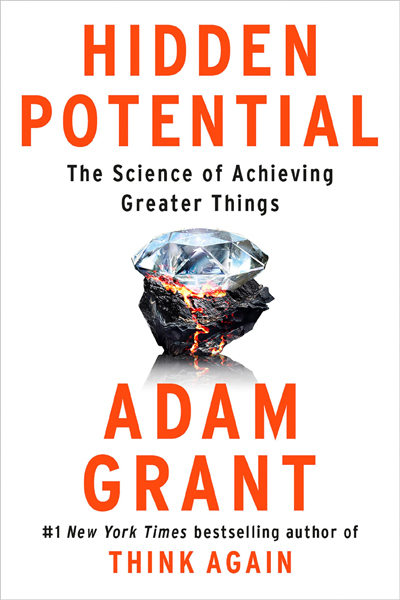
Date: Dec. 6, 2024
Grab your favorite drink and join Kelly Fox, Jarrod Otterman, and Kim Reid for a fun and insightful chat on Three Strong Cups! In this episode, the trio gets real about professional development (PD) and how it’s evolved beyond those old-school classroom workshops. Spoiler: PD doesn’t have to be boring!
They dive into the highs and lows of keeping things fresh as educators—whether it’s finding ways to avoid career burnout, experimenting with new teaching techniques, or embracing the power of podcasts (yes, like this one!) for personal growth. From Kelly’s dental hygiene days to Jared’s love of shaking things up in the classroom, the hosts share candid stories on how PD keeps them motivated and inspired.
With a sprinkle of humor and some honest reflections, they explore how teachers can stay relevant in a fast-changing world without losing their sanity. Plus, they dish on why being intentional with learning goals—and knowing when to say “no”—is the secret sauce to success.
Get cozy, tune in, and sip on some fresh perspectives in this lively discussion that’ll leave you fired up about your own professional growth!
Concepts and Ideas:
Professional Development (PD): If the pandemic taught us anything, it’s that the profession of teaching and learning is constantly changing. Constantly updating our skills and being lifelong learners just makes sense.
CTL offers a wide range of professional learning opportunities including workshops, series, community of practices and asynchronous self-paced learning opportunities. It’s all about helping you build your skills and create amazing learning experiences for your students. Faculty PD – Georgian College
Books and Authors:
A staple in any educator’s library is James Lang. In his book, Distracted: Why Students Can’t Focus and What You Can Do About It, he discusses ideas on engagement and avoiding distractions in the classroom. You can read the book online for free through the Georgian College Library (Link).
One of the podcast hosts’ favourite author and podcaster, Adam Grant, is noted in this episode for providing impactful insights on higher education, mental health, and professional growth through social media and other platforms. You can check out his podcast ReThinking – Adam Grant
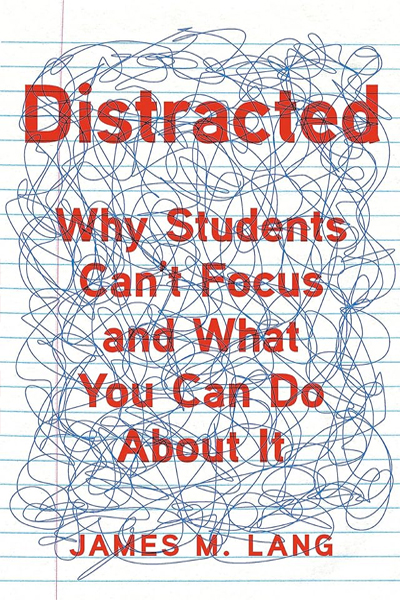
Date: Nov. 29,2024
In this episode of Three Strong Cups, hosts Kelly Fox, Jarrod Otterman, and Kim Reid dive into the concept of the “When-Then Trap”—the mindset where we constantly delay happiness, waiting for some future event to finally feel fulfilled. Whether it’s waiting for a promotion or achieving a goal before we can relax or feel content, this mindset keeps us in an endless loop of chasing something in the future while missing out on the present. They explore how this trap impacts both personal lives and professional settings, particularly in the world of education at Georgian College.
Through raw and honest conversation, the hosts share their own experiences with this mentality and discuss how it can often rob us of joy in the moment. They also touch on the importance of modeling this awareness for students, encouraging a focus on the journey rather than just the end result. By reframing our perspectives, they argue, we can break free from the “when-then” cycle and allow ourselves to enjoy life’s little moments along the way. This episode is a reminder that happiness isn’t something we should save for later—it’s something we can choose right now.
Concepts and Ideas:
- When-Then Trap: The mindset where happiness or fulfillment is deferred to the future, tied to achieving specific goals or milestones.
- Process over Product: Emphasizing the importance of enjoying the journey and focusing on learning, growth, and experiences rather than just the outcomes. Process Over Product in Open Education – Teaching in Higher Ed
- Gratitude Practice: Cultivating gratitude for present moments and small joys as a way to counteract the “When-Then Trap.” 8 gratitude exercises to cultivate a more grateful mindset — Calm Blog
- Childlike Wonder: Rediscovering and embracing curiosity and awe in everyday moments, inspired by children’s perspectives. https://youtu.be/YsYHqfk0X2A?si=p3uphppXHEJyoWIc;
Books and Authors:
Kim talks about one of her favorite authors, Dr. Robin Hanley-Defoe. Her book Resiliency Redefined by Dr. Robyne – Dr. Robyne Hanley-Dafoe shares ideas on embracing happiness and resilience without waiting for perfection.
Kelly mentions one of her all-time favorite educational authors, Sarah Rose Cavanagh and her book, The Spark of Learning.
Informed by psychology and neuroscience, Cavanagh argues that in order to capture students’ attention, harness their working memory, bolster their long-term retention, and enhance their motivation, educators should consider the emotional impact of their teaching style and course design. You can read the book online for free through the Georgian College Library (Link).
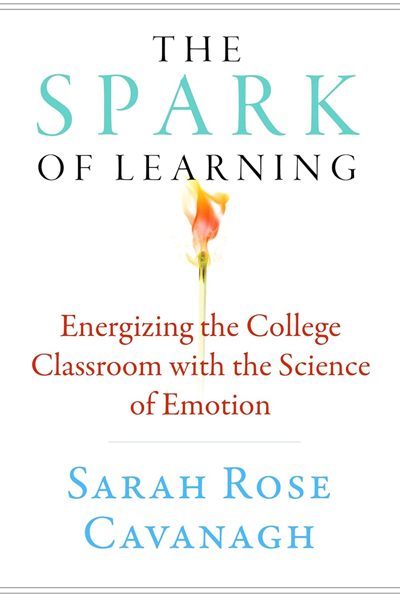
Date: Nov. 22, 2024
In this episode of Three Strong Cups, Kim, Kelly, and Jarrod dive into the concepts of compassion, empathy, and generous assumptions in the classroom, inspired by Dr. Becky Kennedy’s book Good Inside. They explore how these principles can reshape our approach to teaching, parenting, and human connection. The hosts share personal stories on fostering resilience, promoting academic integrity, and maintaining firm boundaries, all while building strong relationships with students. Tune in for a heartfelt discussion about balancing kindness with accountability, and the importance of connection in education and beyond.
Books and Authors:
Kim recommended a couple of books that were inspirational to her:
Good Inside by Dr. Becky Kennedy: Focused on compassionate parenting and teaching, emphasizing that everyone is “good inside” despite challenges or mistakes.
Raising Good Humans by Hunter Clarke-Fields: Discusses the importance of connection before correction in building resilience and positive behaviors in children.
Recommended Podcasts:
- Armchair Expert: A favorite resource for learning about new ideas, featuring an episode with Dr. Becky Kennedy that inspired this discussion. Dr. Becky Kennedy — Armchair Expert
Concepts and Ideas:
- Generous Assumptions: Popularized by Brené Brown focusing on assuming positive intent in others. Generous Interpretation: Building Bridges of Understanding and Connection • Quiet Connections
- Restorative Justice: Suggested as a framework for addressing academic misconduct, focusing on understanding, accountability, and growth. Restorative practices for academic integrity
- Humanizing Education: Inspired by Michelle Pacansky-Brock, emphasizing connection, warmth, and clear expectations to build a supportive learning environment. Humanizing – MICHELLE PACANSKY-BROCK
Academic Articles:
Kelly mentions an article by Michael Brickhill, Grant Andrews & Johanna Nieuwoudt (2024): Published in the Journal of Academic Ethics, this article discusses fostering positive learning environments through generous assumptions, especially regarding academic integrity. Developing Student Agency Towards Academic Integrity Through an Educative Approach: Exploring Students’ Experiences and Perspectives | Journal of Academic Ethics
Date: Nov. 15, 2024
In this thought-provoking episode of Three Strong Cups, hosts Jarrod Otterman, Kelly Fox, and Kim Reid dive deep into the tension between success and failure in both personal and educational settings. The trio explores how society bombards us with the concept of success—whether academic, financial, or personal—and the stigma attached to failure. Together, they challenge the traditional binary view of success versus failure, considering whether we need a new language to capture the growth, practice, and learning that happen in between.
With personal anecdotes, classroom experiences, and insights from educational theories, the hosts discuss how failure is often a necessary step on the path to success. They also explore strategies for creating safe spaces in education where failure is encouraged as part of the learning process. Tune in to this episode for an engaging conversation on redefining success and embracing failure as a critical part of growth.
Grab a cup of your favorite drink and join in as the hosts offer a refreshing perspective on how to thrive through life’s inevitable failures.
Books and Authors:
The podcast hosts discuss The Gift of Failure by Jessica Lahey as a resource for understanding how failure can foster resourcefulness, resilience, and innovation, both in parenting and education. You can access this book through the Georgian College library (link).
Educational Concepts:
Kim, Jarrod and Kelly mention a few resources to support professional development:
- Growth Mindset: Emphasized as essential for fostering resilience and curiosity in students. Developing a growth-mindset pedagogy for higher education and testing its efficacy – ScienceDirect
- Ken Robinson’s TED Talk: Do Schools Kill Creativity? Referenced for its insights on imagination, creativity, and the importance of allowing students to take risks and make mistakes in learning (YouTube video).
- Teaching Strategies:
Low-stakes quizzes and self-checks: Suggested as a way to encourage learning without the fear of failure. Assessment fundamentals – Georgian College
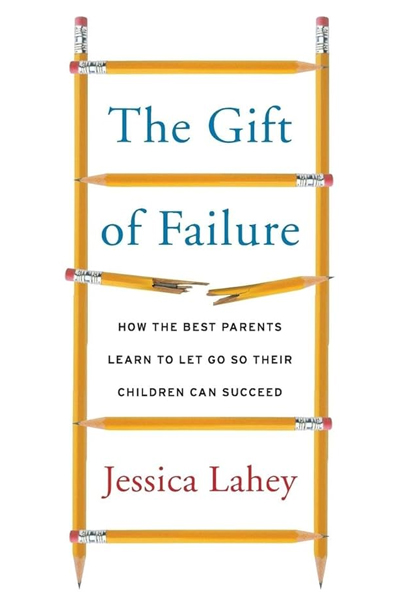
Ungrading practices: Focused on process and effort rather than solely on results. You can access this book through the Georgian College library (link) or check out this easy-to-read article from the author Jesse Stommel: Ungrading: An Introduction
- Classroom Practices:
Creating a “safe space” for failure: Cultivating an environment where students feel comfortable experimenting and learning through mistakes. Psychological safety can be a positive, powerful influence on learning environments | THE Campus Learn, Share, Connect
If you’d like additional information or resources on any of these topics, you can check out these resources: Instructional Coaching – Georgian College or reach out to the CTL team at facultydevelopment@georgiancollege.ca
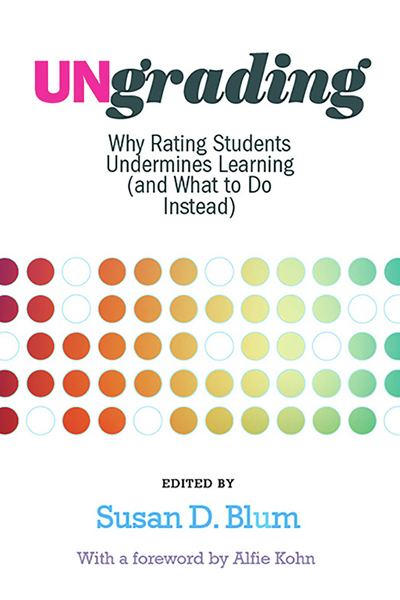
Date: Nov. 8, 2024
In this debut episode of Three Strong Cups, hosts Kim Reid, Kelly Fox, and Jarrod Otterman introduce their new unscripted podcast. The trio dives into the inspiration behind the show, shares their goals for creating meaningful conversations about higher education, and reflects on post-pandemic community building.
From lighthearted laughs to deep thoughts on professional development and burnout, the hosts bring their unique perspectives as educators and colleagues at Georgian College. Join them as they sip, chat, and offer listeners a space for guilt-free connection. Grab your cup, get cozy, and tune in!
Episode Resources
Pixabay
Used for background music in the podcast, adding a professional and polished touch. Podcast Background Music | No Copyright Song & MP3 Free Downloads – Pixabay
Georgian College Resources
Did you know CTL offers a wide range of professional development opportunities like workshops, faculty learning communities and session series. Don’t have time to attend a workshop? CTL’s online, self-paced professional development courses are just the thing. They’re designed to fit into your busy life while giving you the tools and ideas to improve your teaching and learning practice.
Stress Management & Mindfulness In this episode, Kim and Jarrod encourage guilt-free time to recharge and connect. Many health care providers are advocating for teachers and students to be more proactive when it comes to stress management. It’s been shown that stress, anxiety and depression negatively affect cognitive function, thereby decreasing a student’s ability to learn and flourish in the classroom (How to Manage Stress During the School Year). You may consider the following to support mindfulness in your classroom, work environment and home:
- Check out the resources offered through Mental Health and Well-Being. Looking for more, you can check out the Georgian College Mental Health and Well-being
Podcast in Higher Education
Listening to a podcast is an excellent way to immerse yourself in a topic you’re passionate about, with hosts whose opinions and voices you respect and enjoy — including educational leaders that you may not otherwise be able to access! Podcasts also afford busy professionals the opportunity to pursue professional development without setting aside significant time or even making a lasting commitment. Whether you’re looking for new teaching strategies, inspiration, conversations between thoughtful working educators, or simply a few laughs about the daily realities of the classroom, there’s an education podcast out there for you. You can check out the CTL resources for more information and ideas.
If you’d like additional information or resources on any of these topics, you can check out these resources: Instructional Coaching – Georgian College or reach out to the CTL team at facultydevelopment@georgiancollege.ca
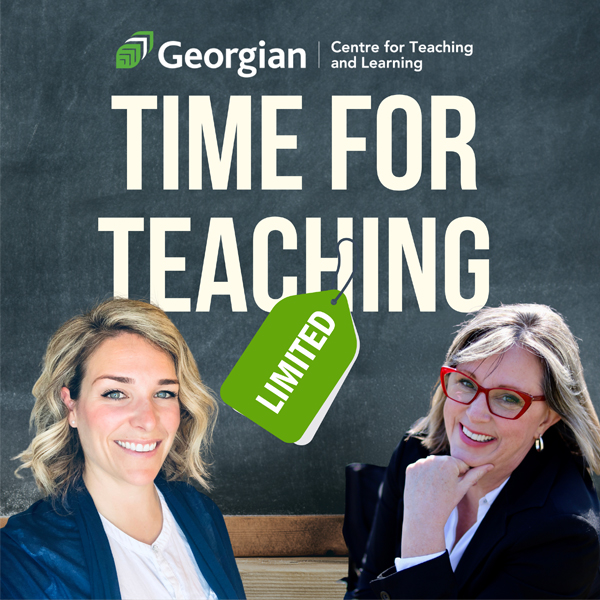
Time for Teaching-Reboot (March 2024-May 2024)
Get ready for a thrilling ride as hosts Kim and Kelly reunite in the podcast space after what feels like an eternity. In this exciting introductory episode, they dive into the nostalgia of their past collaborations, sharing laughter, wit, and the unique bond that made their previous podcast a hit. Hold onto your seats as they share insights from intriguing podcasts that inspired them, like the episode featuring Dr. Vivek Murthy, discussing the alarming levels of loneliness in America. Which sparks a discussion about rebuilding social connections and the hidden impacts of solitude.
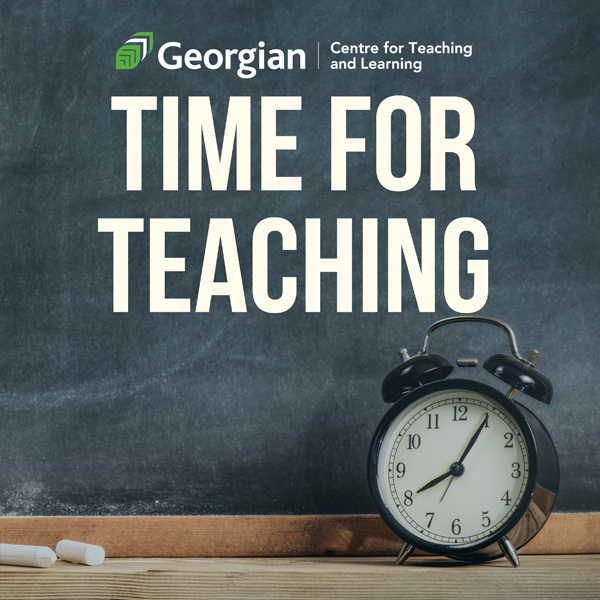
Time for Teaching (Nov. 2020-Jan. 2022)
This podcast was born out of a passion for teaching and learning, & the recognition of how despite our best and most sincere intentions, sometimes there are just not enough hours in the day to do everything we’d like to. Previously, we attended PD, we read, we connected and collaborated, & we used a variety of mediums to learn, share, and grow. For some, these options may be limited now. This podcast aims to collect, curate, discuss, & suggest strategies for applying teaching & learning principles and ideas, while appreciating both the challenges and joy of teaching in higher education.
Newsletters
Teaching and Learning Weekly newsletter
The Teaching and Learning Weekly, sent out every Monday by our team, brings you a roundup of upcoming events tailored to improve your teaching and learning journey. Whether you’re a faculty member, staff, or administrator, it’s a chance to deepen your expertise and positively impact your educational practice.
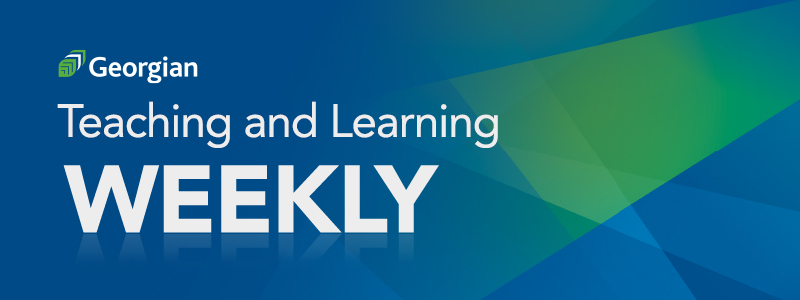
Teaching and Learning Connections newsletter
The Teaching and Learning Connections is a periodic newsletter that keeps our faculty updated and connected with the latest updates, resources, and opportunities for enhancing teaching practice. Expect insights, events, and collaboration opportunities curated by our team. Stay informed and engaged to contribute to the future of learning at Georgian College.
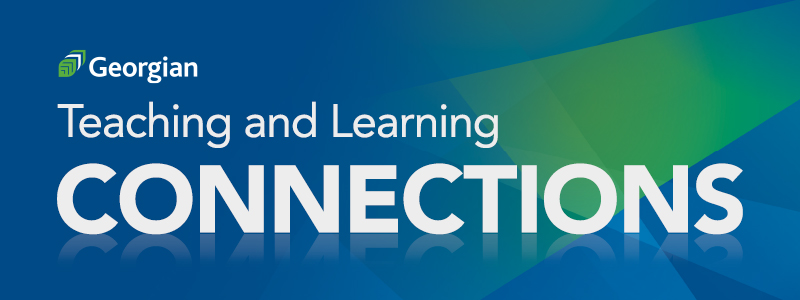
Social media channels
Join us on YouTube, Instagram, X (formerly Twitter), and LinkedIn to stay connected and explore the cutting edge of teaching and learning.
